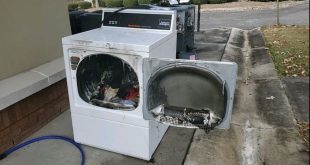Written By: Sarah Turner
The number of students enrolled as exercise physiology majors at Valdosta State University has nearly tripled since 2007 making it the university’s sixth most common major. The growth in popularity of exercise physiology is similar at other universities throughout the state.
Among the schools in the state that offer a bachelor’s degree in exercise physiology, including Georgia State University, The University of Georgia, Kennesaw State University, Columbus State University, Georgia Southern University and VSU, the enrollment within the major grew by 83 percent since 2007 proving exercise physiology’s new-found popularity within the entire University System of Georgia.
As an alternative to nursing, biology and athletic training, exercise physiology is now being used by students as a less intimidating basis for a more prestigious career in health and sciences.
“We have a fairly open door policy where students can come in and see us within reason to discuss their grades and get suggestions as to how they might improve going forward,” said LaGary Carter, assistant dean and associate professor of exercise physiology at VSU. “We have a pretty laid back atmosphere. That said, it is the student’s responsibility to take that initiative.”
VSU’s faculty advises students before they are accepted into the major through the College of Nursing and Health Sciences. Once they are admitted, the small exercise physiology faculty advised students individually.
With a bachelor’s degree, students can immediately pursue careers in cardiopulmonary rehabilitation, physical and respiratory therapy centers, corporate and hospital fitness, community organizations, competitive sports programs and municipalities. They can also use their degree as a stepping stone.
“A lot of students pursue physical therapy, apply to medical school or some other allied-health occupation, and they want to use exercise physiology as a foundation for that,” Carter said.
Enrollment is much more common among senior students as opposed to freshman because of the recent “cut-off number” assigned to the major. Students are now considered pre-exercise physiology majors during their freshman and sophomore year or until they are accepted into the program. According to Carter, the number of enrolled students per year is likely to shrink as acceptance will tighten down in response to the major’s growth in popularity.
An average student in the exercise physiology program has a cumulative GPA of 2.96. The most common student is a white, senior level female with an average GPA of 3.22.
Although the program may be more difficult to get into compared to previous years, students within it typically get by with a much lower GPA than students in a more competitive program like nursing. The average nursing student at VSU has a 3.4 cumulative GPA.
However, students entering the program from high school can expect their GPA to drop around a third of a point. Even students who had a 3.5 or better in high school usually see an average of a .2 drop in their GPA.
“The workload of the program isn’t as heavy as biology or chemistry, but I would say it’s heavier than some of the other majors at VSU,” Jonathan Stokes, junior exercise physiology major, said. “It’s pretty cut and dry stuff.”
While exercise physiology may seem like an easy route to a higher salary, retention of students within VSU’s program isn’t as promising. The program retains about 66 percent of its first-time, full-time freshmen which is slightly lower than VSU’s retention rate as a whole and 13 percent lower than the overall retention rate of the University System of Georgia.
 The Spectator The independent student newspaper of Valdosta State University
The Spectator The independent student newspaper of Valdosta State University





